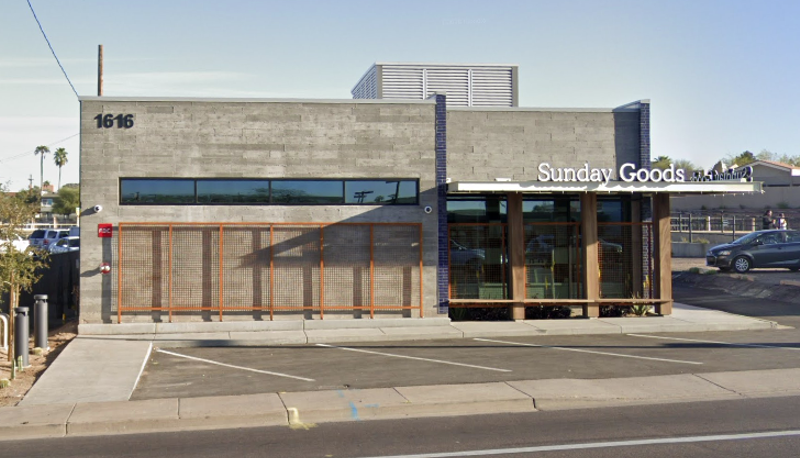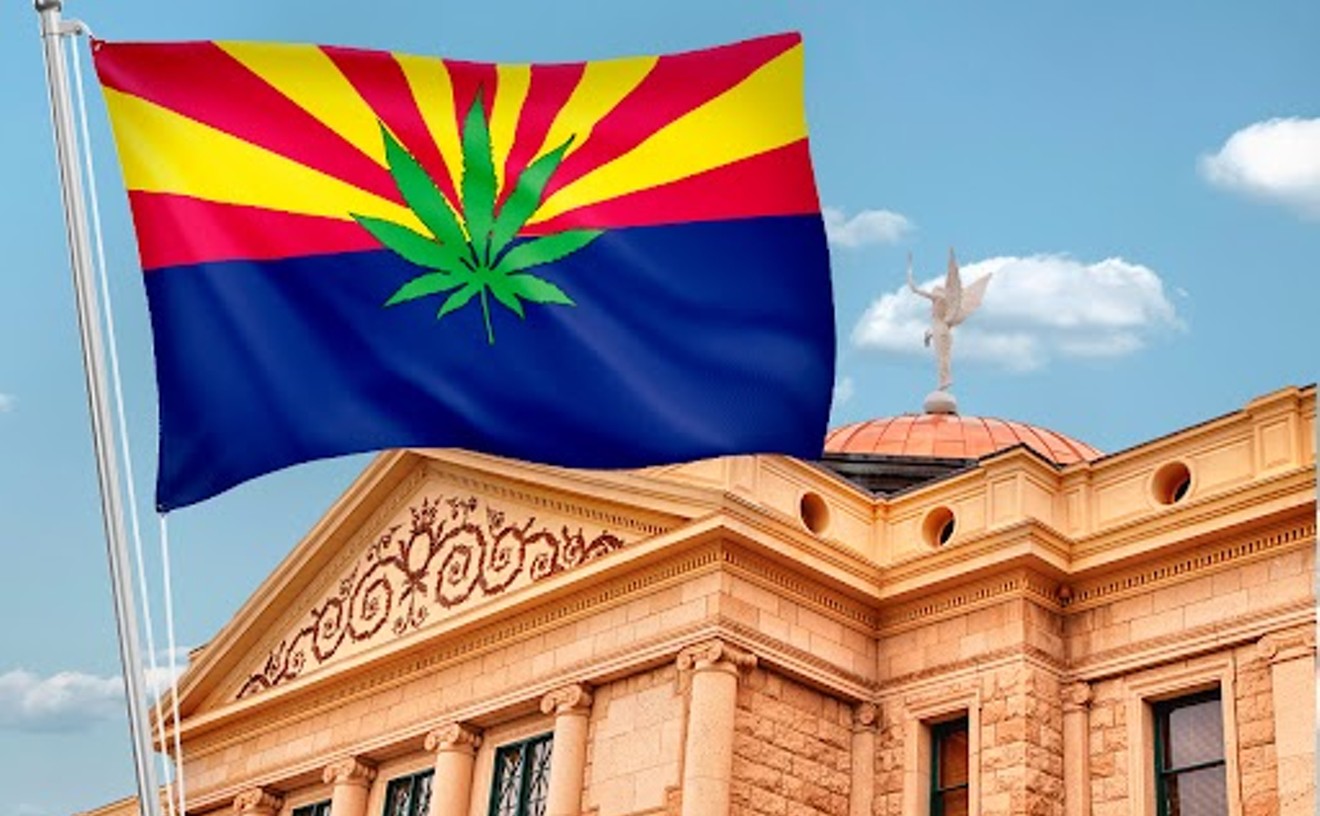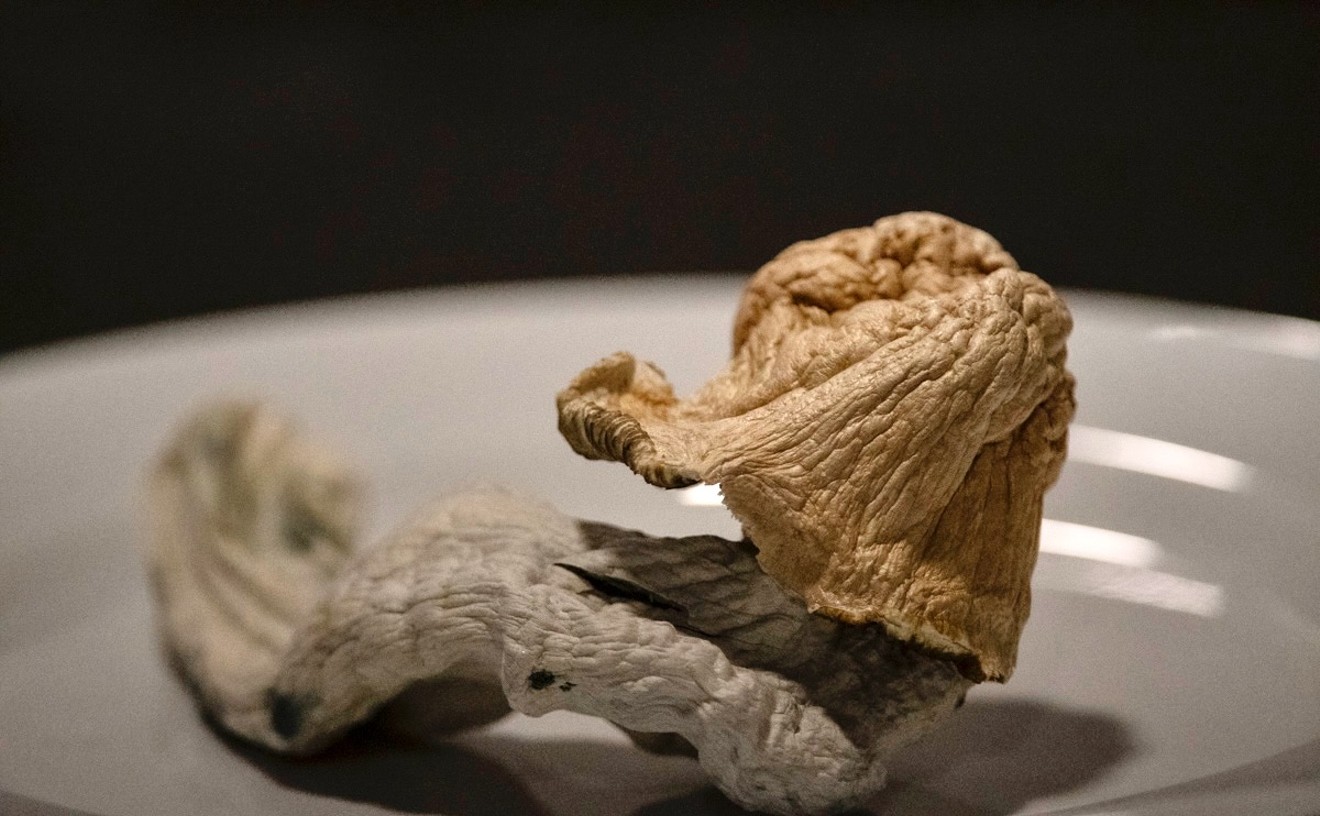Scottsdale-based cannabis corporation The Pharm has settled a lawsuit with a former executive that led to dueling allegations of drug-law violations and extortion.
The Delaware-registered company operates a highly valued collection of brands that includes product lines in Arizona and California, a 320,000-square-foot greenhouse in Willcox, and a Phoenix dispensary called Sunday Goods.
The company had sued former chief financial officer, Mina Guiahi, after she obstructed the firm's attempts to secure a recreational cannabis license.
Guiahi, who joined the company in 2019 with nearly two decades of experience in investment banking, resigned from The Pharm last summer. In her resignation letter, submitted as part of her response to the lawsuit, she said she had been forbidden from speaking to investors or lenders and her other duties had been reduced in retaliation for raising issues about how the company was operating.
"I have significant concerns about numerous and blatant violations of state and federal law and sound corporate governance, and breaches of fiduciary duties, by certain senior executives and board members," Guiahi wrote in her letter to the board. "When I raised those concerns internally, my concerns went unheeded."
The company, through its lawyers, denied any lawbreaking. In an email to investors in February that was also included in the court record, CEO John Haugh alleged that Guiahi had shared confidential information, misrepresented facts, and used company funds to pay her personal attorney before resigning.
The problem for the company stemmed from how it was set up. Like other Arizona dispensaries, a nonprofit company holds its state license to handle marijuana because the Arizona Medical Marijuana Act only authorized "nonprofit" dispensaries. The largely for-profit world of Arizona medical marijuana gets around this with separate companies that operate "in partnership" with the nonprofits.
When Guiahi resigned from The Pharm, she did not explicitly resign from the board of Cardinal Square Incorporated, the nonprofit that holds the medical marijuana license for The Pharm. But The Pharm had set up its nonprofit with just two members, Guiahi and former-president and co-CEO Michael Wang, making a majority vote to remove a member impossible if the other stubbornly refused to resign, as Guiahi did.
This poor piece of corporate architecture became a critical issue when The Pharm tried to claim a recreational marijuana license for its nonprofit dispensary. Under the recreational marijuana law passed by voters last year, medical marijuana dispensaries were guaranteed first dibs on the limited number of recreational licenses, as long as they applied through an early application process by March 9.
While most dispensaries sailed through the process and were able to start recreational sales, Guiahi declined to sign off on the application and it was rejected as a result.
With the final deadline to secure an early-access recreational license fast approaching, lawyers representing Cardinal Square sued Guiahi late last month, seeking an order to either remove her or confirm that she had resigned when she left The Pharm.
As Arizona U.S. District Court Judge James Teilborg put it in a ruling on the case: "If Cardinal blows that deadline, its right to a license goes up in smoke."
Cardinal Square's lawyers argued in their motion for a restraining order that, among other things, Guiahi had resigned by default when she left The Pharm and that she had been, or should be, removed because she had committed extortion. To support this, they cited a phone call in December in which Guiahi's lawyer had asked for $1 million from the company. They said Guiahi was holding the nonprofit hostage.
Guiahi's lawyers responded in a filing that the conversation was a negotiation for a settlement over her departure from The Pharm, something even the opposing lawyer acknowledged in her contemporaneous notes. They also argued that Guiahi's objection to the license application was not a bargaining tactic, but that she was concerned about the other board member, Wang. Guiahi alleged in a statement submitted to the court that Wang had shown a disregard for the law when he was president and co-CEO of The Pharm, and that it would be irresponsible for the company to obtain a recreational license with him involved.
Teilborg denied the company's request on March 8, ruling that it wasn't evident that Guiahi resigned from the nonprofit specifically and that her lawyer's discussion of settlement terms did not constitute extortion.
On March 10, the two sides announced they had reached a last-minute settlement.
Arizona Department of Health Services spokesperson Steve Elliott said on Monday that an early-access license had been granted to Cardinal Square, alongside those previously granted to all 129 other medical license holders.
Neither side's lawyers returned calls or emails from Phoenix New Times seeking additional information on the settlement and the case. The Pharm did not respond to a call or emails Wednesday.
To support her argument, Guiahi has submitted as evidence text messages from 2020 between her and Wang in which she raised concerns about a $250,000 invoice for "genetics consulting" to a California company. Wang warned her in the texts not to discuss the invoice over company email or with anyone besides him or the company's chief plant scientist, Sjoerd Broeks.
"Just make sure no one else knows about this," Wang wrote, "because: In AZ, 1). you cannot buy seed 2). You can only donate seeds for free 3) no one will donate 80,000 seeds to no one in the world for free. People typically charge $2-3 per seed."
Technically, this is a violation of Arizona's medical marijuana law, and if the seeds cross state lines, federal law. But Wang seems to imply in later messages that the seeds would come from Arizona. Even though the payment was to a California company, paying for "consulting" to acquire seeds is not uncommon in the industry; in fact, it's part of how the marijuana business in Arizona got started. Insiders joke that the seeds that grew the industry "blew in the wind from California." Wang's texts offer a blunt explanation of another of the legal fictions employed by the for-profit industry operating under a nonprofit framework.
"Definitely we know that happens in the industry," said longtime local cannabis attorney Tom Dean. He said not everyone uses "consultation" agreements, but it isn't unusual. That being said, if the seeds cross state lines into Arizona, that would be a crime at the state level as well as federally, Dean said. An individual that was caught would face a mandatory 10-year sentence.
"But when the industry engages in that same conduct, there's rarely consequences," he added.
Cardinal's lawyers said that the matter was investigated by an outside law firm that found no illegal conduct by Wang. Even though he left The Pharm in 2020, Wang remains on the board of the nonprofit, according to state records. Guiahi is no longer listed on it and now works for a New York cannabis company.

Audio By Carbonatix
[
{
"name": "Air - MediumRectangle - Inline Content - Mobile Display Size",
"component": "18478561",
"insertPoint": "2",
"requiredCountToDisplay": "2",
"watchElement": ".fdn-content-body",
"astAdList": [
{
"adType": "rectangle",
"displayTargets": "mobile"
}
]
},{
"name": "Editor Picks",
"component": "16759093",
"insertPoint": "4",
"requiredCountToDisplay": "1",
"watchElement": ".fdn-content-body",
"astAdList": [
{
"adType": "rectangle",
"displayTargets": "desktop|tablet"
},{
"adType": "rectangle",
"displayTargets": "desktop|tablet|mobile"
}
]
},{
"name": "Inline Links",
"component": "17980324",
"insertPoint": "8th",
"startingPoint": 8,
"requiredCountToDisplay": "7",
"maxInsertions": 25
},{
"name": "Air - MediumRectangle - Combo - Inline Content",
"component": "16759092",
"insertPoint": "8th",
"startingPoint": 8,
"requiredCountToDisplay": "7",
"maxInsertions": 25,
"watchElement": ".fdn-content-body",
"astAdList": [
{
"adType": "rectangle",
"displayTargets": "desktop|tablet"
},{
"adType": "rectangle",
"displayTargets": "desktop|tablet|mobile"
}
]
},{
"name": "Inline Links",
"component": "17980324",
"insertPoint": "8th",
"startingPoint": 12,
"requiredCountToDisplay": "11",
"maxInsertions": 24
},{
"name": "Air - Leaderboard Tower - Combo - Inline Content",
"component": "16759094",
"insertPoint": "8th",
"startingPoint": 12,
"requiredCountToDisplay": "11",
"maxInsertions": 24,
"watchElement": ".fdn-content-body",
"astAdList": [
{
"adType": "leaderboardInlineContent",
"displayTargets": "desktop|tablet"
},{
"adType": "tower",
"displayTargets": "mobile"
}
]
}
]












